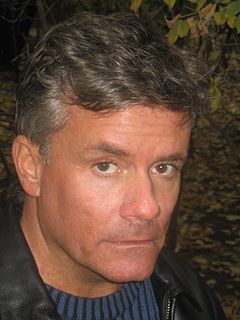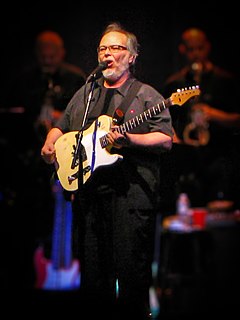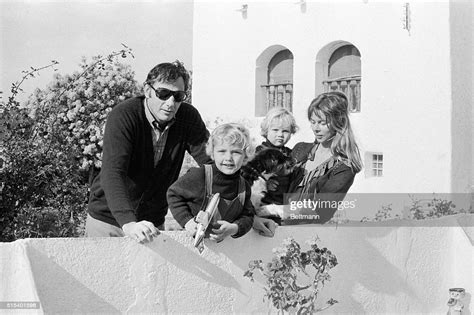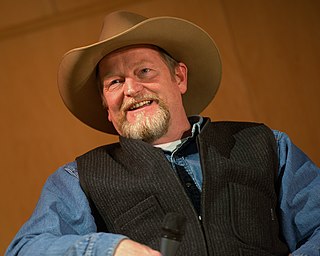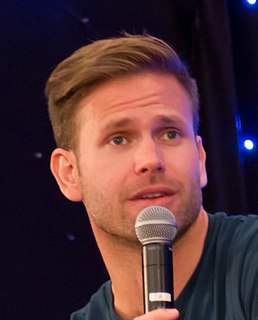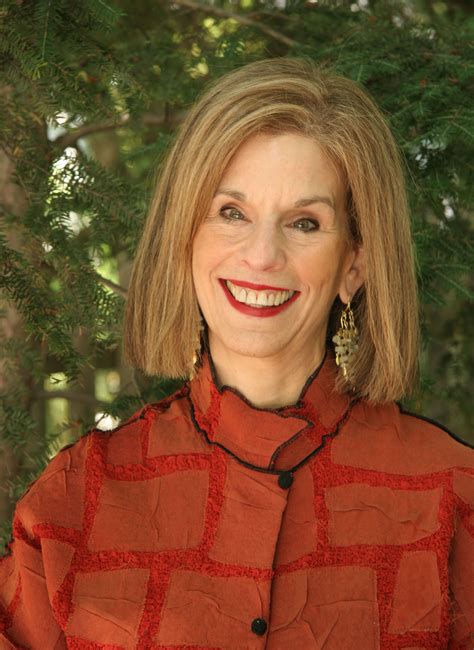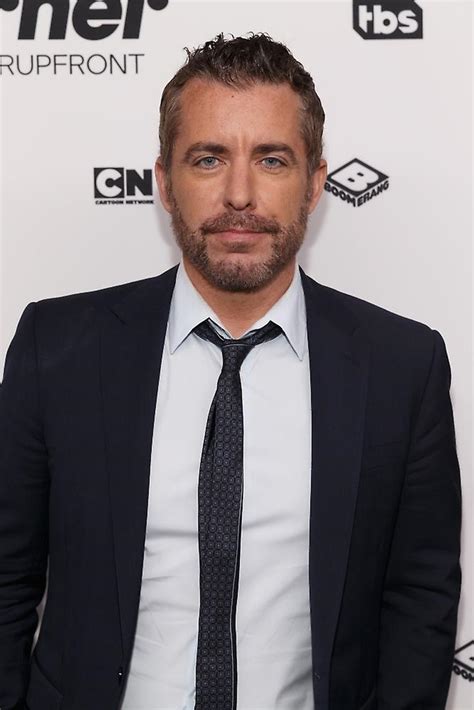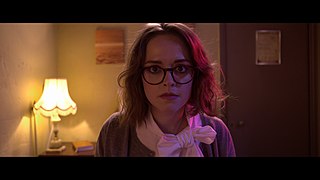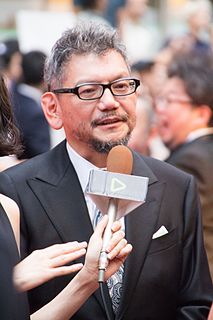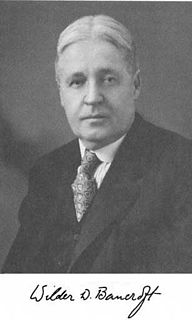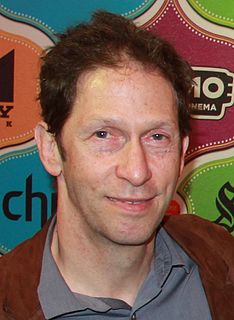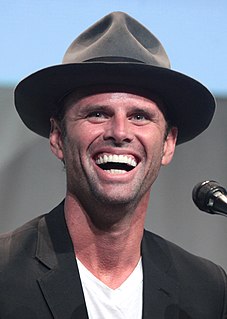Top 288 Protagonist Quotes & Sayings - Page 5
Explore popular Protagonist quotes.
Last updated on November 21, 2024.
Lars is played by Ryan Gosling, the Prince of Tics, whose idea of acting is to wait a few beats before reacting to other people's remarks, as if acting were merely a matter of adhering to the seven-second delay rule. Jack Nicholson has made a career out of doing this sort of thing, as did Paul Newman, as did Marlon Brando (who the other two learned it from), but they didn't do it all the time and they were more fun to look at... Lars And The Real Girl joins a number of other recent films in the category of motion pictures where the director doesn't know that his protagonist is unsympathetic.
Most writers in Mexico have had posts as ambassadors, secretaries - that is no longer the case. Now a writer can live off writing. He has an audience: there are publishing houses, there are newspapers - so the situation is not as terrible as it used to be when there were no means and he had to go into government service, be an ambassador or a cabinet minister, etc. So, things are changing in the sense that the civil society is now the protagonist. The writer therefore occupies a different position, but no less influential than in the past, in a new, democratic society.
I never actually sexually attacked anybody. But I'm a writer, too, and I was always trying to figure out a way to recreate the experience of being this Albert Camus, Stranger-like solitary protagonist character without incriminating myself in any way, like, "Oh, what a perv!" I want to reach out to anybody out there who may have been riding on the train one time when things in their life were completely falling apart and saw a girl's legs in a skirt and it's the last bit of goodness that you can see.
The protagonist of Fourteen Stories, None of Them Are Yours doesn’t make it easy for us, channeling as he does Barry Hannah and Denis Johnson by way of Rick Bass and Dennis Hopper, and self-presenting as yet another damaged romantic who thinks it’s always time to play the cowboy, skating in and out of sense. He can’t see right, and he’s haunted by nearly everything. He’s trying to open up or shut himself down or at least get a hold of himself. He’s trying to make do with what he’s done, while he reminds us that we’re all, one way or another, in that position.
Since I hold no judgments against my characters, no matter how heinous they might seem, I present them as real people with their own moral centers. We might feel those moral centers are mis-calibrated, but they are there and are the rudders that propel them. This makes reading my work a visceral roller coaster, 'cause the reader must embark on the journey of the protagonist equipped only with his or her own moral center.
Black music has always known, and not been afraid to acknowledge just how high the stakes of Black thought are. To summarize the final soliloquy of Clay, the protagonist in LeRoi Jones’ (aka Amiri Baraka’s) play Dutchman. You’d better be glad Charlie Parker could play him some horn and Bessie Smith could sing, because if they didn’t make music they might murder you. One would be hard pressed to find another group of people on this planet whose music is a surrogate for murder. One would be hard pressed to another group of people on this planet whose life is a proxy for death.
My writing derived from the conviction I conceived during my college years: one should lead one's life as if one were the protagonist of an epic novel, with the outcome predetermined and chapter after chapter of edifying, traumatic, and exhilarating events to be suffered through. Since the end is known in advance, one must try to experience as much as possible in the brief time allotted. Writing is a way of ensuring that you pay enough attention along the way to understand what you see.
Consider the different narrative styles within the story, and the glee with which the "moralistic narrator" celebrates Aschenbach's fall - maybe, then, this is a hostile verdict and the international fame is warranted after all (given that Mann modeled his protagonist so closely on himself, it would be quite odd if he had intended Aschenbach's literary inferiority to be a fixed part of the interpretation).
The sense of tragedy - according to Aristotle - comes, ironically enough, not from the protagonist's weak points but from his good qualities. Do you know what I'm getting at? People are drawn deeper into tragedy not by their defects but by their virtues. ... [But] we accept irony through a device called metaphor. And through that we grow and become deeper human beings.
It's important for people of colour to have the opportunities to play characters that are as nuanced - as three-dimensional, as human - as the characters who we traditionally see getting to play the protagonist. The good guys and the bad guys. The reason that is important is because it's a better reflection of the reality of the world we live in.
This bill would renounce the safe, proper, and acceptable role for Government as a referee of disputes between the governed. It would interpose the Government as a biased protagonist, armed with the awesome authority of the Federal Government, in addition to rulemaking and umpire powers. The broad grants of power to the Attorney General to initiate and intervene in civil actions would go far toward transforming him into George Orwell's 'Big Brother' of '1984,' in the year 1964.
This act of empathy, that women go through from the time we're little girls - we read all of literature, all of history, it's really about boys, most of it. But I can feel more like Peter Pan than Tinker Bell, or like Wendy. I wanted to be Tom Sawyer, not Becky. And we're so used to that act of empathizing with the protagonist of a male-driven plot. I mean, that's what we've done all our lives. You read history, you read great literature, Shakespeare, it's all fellas, you know?
A criminal trial is like a Russian novel: it starts with exasperating slowness as the characters are introduced to a jury, then there are complications in the form of minor witnesses, the protagonist finally appears and contradictions arise to produce drama, and finally as both jury and spectators grow weary and confused the pace quickens, reaching its climax in passionate final argument.
Femininity, yes, effectively there is more in The First Man, not only in terms of women but stylistically, in its elements, the notes he wrote. You can see a real love story in it, a childhood love story, [Albert] Camus' first. Meursault [protagonist of The Outsider] and Marie were never up to much really. There is Dora in The Just and others in his plays, but they aren't so well known.
If there's a character type I despise, it's the all-capable, all-knowing, physically perfect protagonist. My idea of hell would be to be trapped in a four-hundred page, first-person, first-tense, running monologue with a character like that. I think writers who produce characters along those lines should graduate from high school and move on.
If the point of life is the same as the point of a story, the point of life is character transformation. If I got any comfort as I set out on my first story, it was that in nearly every story, the protagonist is transformed. He's a jerk at the beginning and nice at the end, or a coward at the beginning and brave at the end. If the character doesn't change, the story hasn't happened yet. And if story is derived from real life, if story is just condensed version of life then life itself may be designed to change us so that we evolve from one kind of person to another.
John Steinbeck's 'The Grapes of Wrath' also speaks urgently to today's concerns: the cratered trail of dreams for Mexican immigrants seeking a promised land in the Western [United States]; the perfidy of banks in foreclosing on poor people's homes; and the insurgent urge of the book's protagonist, Tom Joad, to speak truth to police power. 'Wherever there's a cop beatin' up a guy,' Tom promises, 'I'll be there.' In Salinas, Calif., Ferguson, Mo., or Staten Island, N.Y., Tom's truth goes marching on.
I do think some games are works of art, although their medium is visual rather than verbal. Both games and novels allow the reader/player to become a protagonist in the theater of the imagination. Both build worlds. In my opinion, the big difference between game and novel is in narrative structure. Communal role-playing games are open-plan without an end. A novel - at least the kind I write - has a closed structure with a beginning, a middle, and an end. I like that closed structure, and I feel I can say more with it.
Starring Russell Crowe as the Patron of the First Ark, 'Noah' had affronted some Christian literalists with its giant rock men, its weird visions, and the occasionally dark motives of its protagonist. But the film corralled enough religious leaders, including Pope Francis (with whom Crowe snagged an audience), to salve canonical objections.
I think that sometimes people fear continuity because it can turn into repetition - and there's a lot of artists who are really good at creating something new all the time. But for me it's about the consistency in my story. Because after all, I'm the protagonist in everything. All the songs are about my life so naturally there will be some connection because I'm still the same person I've always been.
Girlchild . . . unfolds a compelling, layered narrative told by a protagonist with a voice so fresh, original, and funny you'll be in awe. This novel rocks . . . In Girlchild Tupelo Hassman has created a character you'll never forget. Rory Dawn Hendrix of the Calle has as precocious and endearing a voice as Holden Caulfield of Central Park. When you finish this novel, your sorrow at turning the last page will be eased by your excitement at what this sassy, talented author will do next.
My parents are amazing. When I said I wanted to go into film, they didn't understand it, but they were incredibly supportive. But growing up, I absolutely did have that feeling of, "Wow, somebody just gave me up." That was infused in The Secret Life of Bees too - the protagonist wanting unconditional love from her dead but much-imagined mother.
Despite the natural belittling of one's self, the doubts, the insecurities, we have to wake up to the realisation that we all write our own autobiography, we are the authors of our life story. Realising that, write a good story with your life and make sure to write yourself as the protagonist. Be the hero of your journey.
Free will is something that people struggle with so much, but it's very simple to me. Carl Jung said at the same moment you're a protagonist in your own life making choices, you also are the spear carrier, or the extra, in a much larger drama. You've got to live with these two opposite ideas at the same time.
Because the writer must be a participant in the scene, while he's writing it — or at least taping it, or even sketching it. Or all three. Probably the closest analogy to the ideal would be a film director/producer who writes his own scripts, does his own camera work and somehow manages to film himself in action, as the protagonist or at least a main character.
Every field piece I did on 'The Daily Show' was a story that lasted five to six minutes. We had a protagonist, we had an antagonist and often put them at odds. We knew the story we wanted to tell before we went in, and often it was about plugging whatever character you have - in this case, a real person - into said part.
I remember on 'Jug Face' working with Chad Crawford Kinkle, who is as sweet as they come. He told me someone had given him advice that if you're making a drama, you basically need to put your main protagonist through living hell in every scene, and then you'll have a successful film. He laughed it off until watching me every day!
Eva is a story of repetition. It is a story where our protagonist faces the same situation many times over and determinedly picks himself back up again. It is a story of the will to move forward, even if only a little. It is a story of the resolve to want to be together, even though it is frightening to have contact with others and endure ambiguous loneliness. I would be most gratified if you found enjoyment in these four parts as it takes the same story and metamorphoses it into something different.
Storytelling is an act of cruelty. We are cruel to our characters because to be kind is to invite boredom, and boredom in storytelling is synonymous with big doomy death-shaped death. So: be cruel to your protagonist. Rob him of something. Something important. Something he needs. A weapon. An asset. A piece of knowledge. A loved one. A DELICIOUS PIE. Take it away! Force him to operate without it. Conflict reinvigorates stale stories. New conflict, or old conflict that has evolved and grown teeth.
There is a social contract in "Fight Club" and in "Choke" where the protagonist has deceived a whole bunch of people. In "Choke" it's all of these people who think that they've saved his life, and really care about him because they've embraced him and they've been his saviors. In "Fight Club" it's all of these people who are dying of various diseases, and they thought that Edward Norton was also dying so they allowed him really strong pent-up emotions.
Ostwald was a great protagonist and an inspiring teacher. He had the gift of saying the right thing in the right way. When we consider the development of chemistry as a whole, Ostwald's name like Abou ben Adhem's leads all the rest ... Ostwald was absolutely the right man in the right place. He was loved and followed by more people than any chemist of our time.
I started writing 'Leaves Of Grass' when my professional life was falling apart somewhat. I just had a movie implode in pre-production. And so I came back licking my wounds to New York, where I live, and started to write a script about a protagonist for whom the exact same thing happened: His life was falling apart.
The writer is both a sadist and a masochist. We create people we love, and then we torture them. The more we love them, and the more cleverly we torture them along the lines of their greatest vulnerability and fear, the better the story. Sometimes we try to protect them from getting booboos that are too big. Don’t. This is your protagonist, not your kid.
Mindi Scott has a real talent for getting inside her protagonist's head. She sketches out Coley's story in grand swathes, and then paints in all the little details, so that you feel as though you are enmeshed in Coley's brain: thinking her thoughts, feeling her confusion, anger, and, in the end, pain. I just don't think it's possible to read this book and not identify with Coley in some way.
The whole concept of ECW was that the biggest star of the promotion was the promotion itself. It didn't matter if a persona was designed to elicit cheers or boos. It didn't matter if someone was an antagonist or protagonist. The whole concept was to fight for the honor of the cause. The cause was ECW itself.
It's about something that I'm extremely passionate about: exploring other cultures, how Americans are perceived by other cultures and how we perceive other cultures through our worldview. I travel whenever I get an opportunity to do so, and I think this country is ready for a show on television that is bilingual and really puts front and center another culture, both as the protagonist and the antagonist.
The definition of horror is pretty broad. What causes us "horror" is actually a many splendored thing (laughs). It can be hard to make horror accessible, and that's what I think Silence of the Lambs did so brilliantly - it was an accessible horror story, the villain was a monster, and the protagonist was pure of heart and upstanding so it had all of these great iconographic elements of classic storytelling. It was perceived less as a horror movie than an effective thriller, but make no mistake, it was a horror movie and was sort of sneaky that way.








